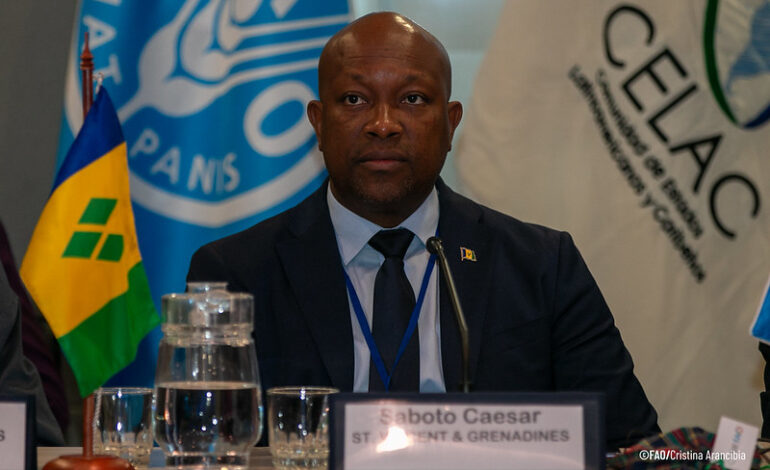
30 Latin American and Caribbean countries ratified the document at a ministerial level to contribute to the region’s efforts to eliminate hunger and reduce malnutrition.
January 19, 2024, Santiago, Chile –The regional office of the Food and Agriculture Organization of the United Nations (FAO) in Latin America and the Caribbean hosted the meeting “Agriculture Unites People – Food and nutritional security for our Americas” of the Community of Latin American and Caribbean States, CELAC, which brought together government representatives from 30 countries of the region in person and virtually.
On the occasion, the attending ministers unanimously validated the new CELAC Food and Nutritional Security and Hunger Eradication Plan 2030, whose drafting process began in January 2023 at the request of the heads of state and governments of its member countries.
FAO, together with the Economic Commission for Latin America and the Caribbean (ECLAC), the Latin American Integration Association (ALADI), and the Inter-American Institute for Cooperation on Agriculture (IICA), prepared the new CELAC FNS Plan, which aims to strengthen solidarity among countries to eliminate hunger and reduce malnutrition before the end of the 2030 Agenda for Sustainable Development. This regional document will help move towards more inclusive, efficient, resilient, and sustainable agrifood systems that provide healthy diets for the entire population. The Plan offers general guidelines to guide countries in implementing the more specific and operational components in line with their local context.
At the end of the meeting, FAO Assistant Director-General and Regional Representative for Latin America and the Caribbean, Mario Lubetkin, said: “I would like to congratulate all the efforts made, which materialized in a regional consensus to move forward in updating the CELAC FNS Plan, and as an articulated response to the impact of different events and challenges that the region faces,” adding that “from FAO, as a global technical assistance agency, we are honored to provide our support in this process together with ECLAC, IICA and ALADI.”
Saint Vincent and the Grenadines, who are currently holding the Pro Tempore Presidency of CELAC, led the meeting. Saboto Caesar, Minister of Agriculture, Forestry, Fisheries, Rural Transformation, Industry, and Labor of that country, thanked FAO and the other technical organizations for their technical support in achieving the consensus reached at the meeting.
Caesar stressed the importance of moving from agreement to action and the willingness of his government to collaborate in the transition process of the new Pro-Tempore Presidency of CELAC, under the leadership of Honduras, to advance in the implementation of the new food plan.
He also highlighted the fraternity and unity of Latin America and the Caribbean demonstrated in this important regional agreement. “For St. Vincent and the Grenadines and the CELAC member states, this is a very proud moment in which we achieved a fundamental objective: establishing a Food and Nutritional Security plan. This means that we will move towards food sovereignty and security; it is definitely an occasion to improve our cooperation. We will work with the technicians in Latin America and the Caribbean to ensure that food is always available and affordable”.
For his part, Minister Esteban Valenzuela of Chile, host of the meeting of ministers, expressed his appreciation for the work carried out in the preparation of the new CELAC 2024-2030 FNS Plan and assured that “2023 was the year in which all the countries worked to achieve a commitment to policies for fairer, more resilient food systems adapted to climate change”.






